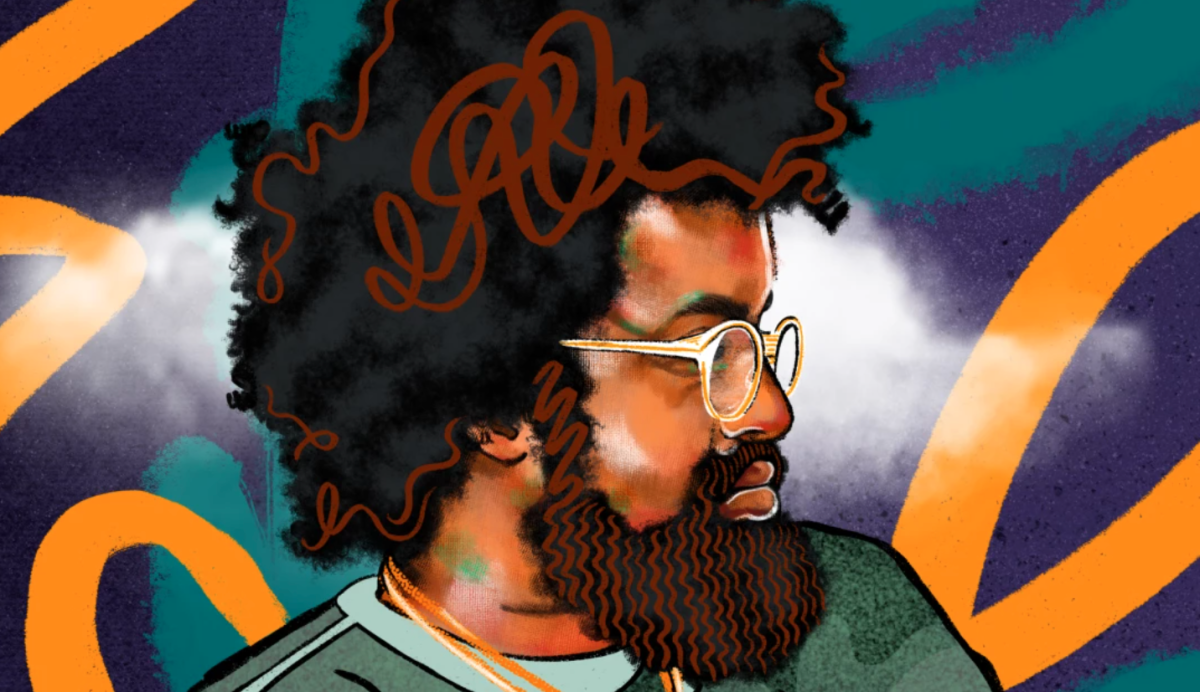Why did clams disappear from Pismo Beach?

- Share via
Good morning, and welcome to the Essential California newsletter. It’s Thursday, Dec. 2. I’m Justin Ray.
In a recent report, The Times’ Sean Greene explains how last month’s Pismo Beach Clam Festival was a special one. The event made its grand return after a coronavirus-induced hiatus. Costumed mascots Sam and Pam the Clam once again marched in the parade as the grand marshals.
But it was also special because no one has seen so many clams on the beach for years. In July, Cal Poly San Luis Obispo researchers counted 35,000 clams in three days of surveying, a figure that’s more than what they found in the previous five years of research.
“You can’t even walk on Pismo Beach right now without stepping on clams,” Cal Poly graduate student Marissa Bills, who now leads a project looking into the animals, previously told The Times.
Researchers are seeing bigger clams, smaller clams and many in-betweens, all living and growing in the sand at the same time.
The news is exciting for locals and researchers who had observed a decline in the shellfish’s population in the early 1980s.
Before then, they had been plentiful, leading locals to use them for chowder, livestock and even currency. But then they went away, and the clam community’s crash created a calamity.
Greene is out with a deep dive that attempts to answer why the shellfish went away. It includes some pretty neat graphics and visuals.
Learning why they disappeared in the first place may help us aid in the population’s maintenance, and prevent them from once again vanishing.
“Pismo Beach was indeed the Clam Capital of the World,” Greene writes. “But did it love them too much?”
You can read the full report here.
And now, here’s what’s happening across California:
Note: Some of the sites we link to may limit the number of stories you can access without subscribing.

By now, you probably have heard that the nation’s first case of the Omicron variant has been found in California. Here are three things to know about the news:
- The infected individual returned home to San Francisco from South Africa on Nov. 22 and tested positive Monday, officials said. The person was fully vaccinated and experienced mild symptoms that did not require hospitalization.
- The patient is self-quarantining. Close contacts have been identified and have tested negative so far, according to the U.S. Centers for Disease Control and Prevention. The case was confirmed by the San Francisco Department of Public Health, with genomic sequencing conducted at UC San Francisco.
- Citing privacy, health officials did not release many details about the individual. Gov. Gavin Newsom did say the person was between 18 and 49 years old. For the time being, the discovery of the variant will not spark new health orders in San Francisco, officials said.
Here’s what else we know at this point.
L.A. STORIES
L.A. voters, angry and frustrated over homeless crisis, demand faster action, poll finds. Los Angeles voters want the government to act faster and focus on shelter for people living in the streets, even if those efforts are short-term and fall short of permanent housing, according to a new poll conducted by the Los Angeles Business Council Institute in cooperation with The Times. Most voters continue to express empathy for homeless people, but also impatience and disappointment with the region’s leadership, according to the poll. A key finding: Nearly four in 10 voters said that homeless people in their neighborhood made them feel significantly unsafe. Los Angeles Times
Reviewing Los Angeles’ proof of vaccine mandate. Capital and Main says that while L.A.’s vaccine mandate is imperfect, it “should be seen for what it is at the core: one of the most far-reaching attempts by any city in the U.S. to require that people prove they’ve been vaccinated before they step into a multitude of public locations.” For that reason, the outlet says, it should be followed closely, especially as we head into what may be a surge in COVID-19 cases this winter. Capital and Main
Our daily news podcast
If you’re a fan of this newsletter, you’ll love our daily podcast “The Times,” hosted every weekday by columnist Gustavo Arellano, along with reporters from across our newsroom. Go beyond the headlines. Download and listen on our App, subscribe on Apple Podcasts and follow on Spotify.
POLITICS AND GOVERNMENT
Metro’s $1 rideshare experiment is expanding to the Westside. Metro’s answer to Uber and Lyft will be coming to Westwood/UCLA on Dec. 12 with the launch of its rideshare service Metro Micro in its ninth zone. The goal of the micro-transit pilot program led by L.A. Metro’s Office of Extraordinary Innovation is to bring ridesharing to L.A. residents who are underserved by companies such as Uber and Lyft. The $1 on-demand service will run Monday to Friday from 9 a.m. to 9 p.m. Rideshare companies have been stealing customers from Metro, which has seen billions in transit investments in recent years. Metro’s core bus and train services saw a 70% drop in ridership during the first months of the pandemic. Dot.La
Move over, Pete Buttigieg. It’s Fred Karger who belongs in the history books. Karger would like the world to know something once and for all. “I have the distinction of being the first openly gay major party candidate to run for president of the United States,” he told The Times. That’s a fact, even if it’s often forgotten or ignored. Back in 2012, the former Republican consultant and corporate campaign strategist waged a long-shot bid for the GOP nomination. Karger stayed closeted until he was 56. He’s now 71 and, after playing an important role in the fight to legalize same-sex marriage, remains active promoting gay candidates and political causes. Los Angeles Times
CRIME AND COURTS
Bakersfield has agreed to pay $250,000 to settle a lawsuit filed in the fatal shooting by police of a man who reportedly suffered from mental illness. The shooting happened Aug. 6, 2014, at a gas station when a man named Michael Dozer pointed a black metal object at Officer Aaron Stringer, police said. The object turned out to be a bicycle lock. The settlement was reached with the mother of Dozer. Stringer left the force a year later following an incident in which he allegedly tickled the corpse of a man killed by another officer. KGET
Jacqueline Avant, a Los Angeles philanthropist and the wife of legendary music producer Clarence Avant, was shot and killed during what authorities believe was a home-invasion robbery in Beverly Hills early Wednesday, a source familiar with the case told The Times. Avant has been a prominent Los Angeles philanthropist over the decades, notably in support of the UCLA International Student Center. Her husband is a legendary figure in the music industry, working with or advising such stars as Jimmy Smith, Lalo Schifrin, Babyface, Bill Withers, Sixto Rodriguez, the SOS Band and Cherelle. Los Angeles Times
Support our journalism
HEALTH AND THE ENVIRONMENT
Illegal marijuana farms pose wildfire risk in California’s parched national forests. Advocates estimate that the state’s national forests, four of which ring the L.A. Basin, are home to between 80% and 85% of the nation’s illegal marijuana grown on public land. But when traffickers begin a grow on drought-stricken federal forests, they put millions of people at risk. They use scarce water and sometimes set bone-dry woodlands ablaze. At least 13 wildfires in the last dozen years have been linked to grows. “This is an abuse of the natural resources and the land that we as an agency are stewarding for the public,” said Mourad Gabriel, regional wildlife ecologist for law enforcement and investigations in the U.S. Forest Service. NBC News
‘A mysterious sickness has control of my body. And I’m unsure if it will ever leave.’ When Los Angeles writer Rembert Browne is overtaken by the sudden onset of strange ailments, all he knows is that something’s off. Is it anxiety? A serious illness? He’s not sure. “The walk to the car from his office was tear-filled. The neurologist has me convinced: Something is wrong. And whatever it is requires urgent attention. I’m wired to trust authority figures who went to school for a long time, but he kind of seemed manic and insane, which was confusing,” Browne writes. Los Angeles Times

CALIFORNIA CULTURE
‘I went to all 58 counties because I love California.’ One person who enjoys the Golden State is Matt Fleming, who recently wrote about his travels in an adorable Orange County Register article. “That’s the thing about California: It is an experience. And like all experiences, it’s thrilling to try something new, even if occasionally it’s not fun. And we need those experiences because without them we could never fully appreciate the good times,” Fleming writes. Orange County Register
Free online games
Get our free daily crossword puzzle, sudoku, word search and arcade games in our new game center at latimes.com/games.
CALIFORNIA ALMANAC
Los Angeles: This cat is chillin. 70 San Diego: 66 San Francisco: Overcast, 67 San Jose: Overcast, 74 Fresno: 72 Sacramento: 66
AND FINALLY
Today’s California memory is from Karen Adams:
In 1973 I was 14, a proud member of the Junior Zookeepers program at the Santa Barbara Zoo. One of my favorite jobs was feeding the two baby Asian elephants, Little Mac and Sujatha, who ate the tall grass we cut from a nearby hillside. After taking the grass from our outstretched arms and tucking it into their mouths, they extended their soft, rubbery trunks to stroke our faces. Sadly, they passed away recently, yet I still recall their touch. The warm feeling of my head cradled by a small elephant’s trunk is a joyful memory I will always cherish.
If you have a memory or story about the Golden State, share it with us. (Please keep your story to 100 words.)
Please let us know what we can do to make this newsletter more useful to you. Send comments to essentialcalifornia@latimes.com.
Sign up for Essential California
The most important California stories and recommendations in your inbox every morning.
You may occasionally receive promotional content from the Los Angeles Times.




